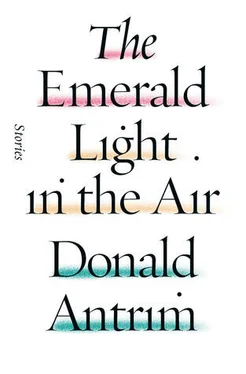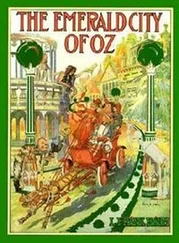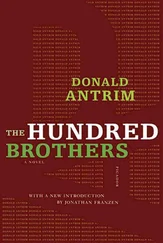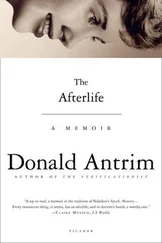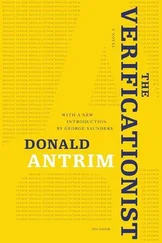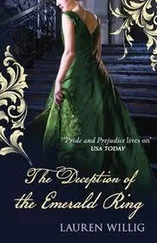He turned on the headlights and the wipers.
In the hospital, he’d had hallucinations. He remembered looking in his bathroom mirror — it was made of metal, not glass — and seeing his face deformed. He’d known better than to believe what he saw, but, on the other hand, he hadn’t known better, far from it: There it had been in front of him, his bent, misshapen skull. Now, as he drove into the forest, Billy recalled that, for a long time, the time of the locked ward and his sick brain and the torn-up suicide notes to Julia, he’d felt the burning. He’d felt it in his temple. It was, somehow, he knew, both imaginary and real, a beckoning, an itch, a need for a bullet. Of course he’d thought always of the Browning, of loading it and getting into position on the living-room floor, or maybe out back in the barn, maybe laying down a tarp first.
The barn on the hill behind his house — that was where he made his art. When he wasn’t teaching seventh graders how to draw, he made big untidy installations that he referred to as his trash heaps. Along with the rifle and the comics and Julia’s art, he had in the back of the Mercedes a canvas bag with about two dozen cans that he’d saved from trips to the shooting pasture. He was planning to include them in a piece. He needed more, but he didn’t eat much canned food, and his personal use of the materials in his work was crucial to him.
The thing about Mary was that her limp looked good. It wasn’t a very noticeable limp. One of her legs was shorter than the other. Billy remembered her swaggering down the hall in high school, thirty years before. Her father had been a country doctor, the sort who got out of bed and drove into the hills at all hours to treat people who couldn’t pay or get down the mountain to town. Mary was a year older than Billy, but she’d let him put his hands down her pants. He’d ridden his bike up Route 250, past the Episcopal church, to her house. There was never anyone home but her. She’d been provocative and graceful and unembarrassed. He remembered her standing on her short leg, the other leg propped out at an angle, toes touching the floor, a dancer’s pose.
What he needed to do was fix up the car. It was a 1958 220S with a white roof and a gray interior, and there had been rust on the body and the chrome and underneath, on the chassis, for a long time. Billy wasn’t a car buff, and didn’t know what this one might be worth cleaned up. People had offered to buy it. He remembered riding in it with his grandfather, who never drove faster than twenty-five miles per hour. His grandfather had told stories, actually, of driving his old Ford up creek beds, back in the thirties.
Billy urged the car up a mossy rise and over a little waterfall. Branches scraped the roof.
After Julia left, in his worsening he’d walked and moved as if crushed by some stronger form of gravity. The air had pressed him down, and he could not get out from under it. Some days, he’d curled in a ball on the floor and promised himself that soon, soon, soon — it would be his gift to himself — he’d walk up to the barn and lie down with the rifle.
The car was swamped. Or it wasn’t, exactly, but the creek had risen and the tires now made a wake. The Mercedes didn’t have much acceleration, and the steering felt loose. Billy powered over a high rock, or maybe a tree root — it was hard to see — then, suddenly, precipitately, the wheels dropped in front and the car slammed down and stopped.
Billy pressed the gas. The motor raced and the car shook but didn’t move. He gave the engine gas again, and the rear wheels spun, churning the creek and throwing mud. He put the lever in park. Lightning hit, close and loud. Billy reached across the seat, opened the glove compartment, and felt around for the pot. There was the registration paperwork, and there was a pill bottle, his Ativan; and there were his pliers (he’d recently begun preparing the cans, tearing and disfiguring them before shooting), and the joint and the lighter, and the driving gloves that his grandfather had worn and that Billy’s father had kept in the car after Billy’s grandfather died, and that Billy had left there after his own father died. He took the gloves out and felt how old they were, then worked his hands into them.
On or off — he wasn’t sure what felt better.
He put the pills in his shirt pocket, turned off the ignition and the wipers and the lights. He remembered how the misery had bowed him over: He’d gone everywhere, in those days, with his head down, barreling rigidly forward, compounding the pain by moving at all; but when he touched himself to find where the pain was coming from he couldn’t find the spot.
It was dark in the woods without the headlights. He lit the joint and the car glowed inside. Julia’s paintings were in back. She worked with tiny brushes, and he’d wondered, sometimes, when he saw her at it, what she was thinking while she slowly built up the paint on the canvas. He exhaled smoke and watched the saplings at the edge of the creek bend in the surge.
She’d talked to him, as they stood together at the Accademia, gazing at The Rape of Europa , about the singular cloud hovering over Europa, its complete non-relation to the more natural-seeming clouds that dominate the painting as a whole, the delicate, pale clouds on the horizon, the spire of darker cloud rising up behind the rocks. “Everything is off in Tiepolo,” she’d said. “Spatial relations don’t cohere. It isn’t simply that people fly with angels through the air. What world are we looking at? The paintings at all points lead the eye toward infinity.” She might have been anticipating his own predicament, his own crisis of perception, when, nine months later, and again the following year, he’d lain on the operating table, crying and holding the nurse’s hand, while the doctors got him ready. The hospital ceiling was white foam tile with fluorescent lights, and the doctors had looked to Billy as if they were levitating beneath them, beneath the lights — as if they, the doctors, had descended from heaven to perform electroconvulsive therapy.
Someone was coming toward the car. A figure moved between the trees beside the creek. It was a boy carrying an umbrella. He was skinny and wore jeans and no shirt. He stepped down to the bank and splashed across to the car with the umbrella over his head. Billy rolled down the window, and the rain swept in, drenching him.
“Are you the doctor?” the boy said.
“Doctor?” Billy said.
“Luther said he saw car lights. We prayed you’d come. Are you smoking pot?”
“I’m stuck on this rock,” Billy said.
“I see that,” the boy said.
“I was making good progress, and the next thing I knew the wheels were spinning.”
“Creeks aren’t the best for driving in a storm,” the boy said.
Billy rolled up the car window. He opened the door and put out his foot. The rock was massive and slick; the creek was about to overtake it. He eased himself out and stood clear of the car. He was still wearing his grandfather’s driving gloves and holding the joint. He lowered one foot into the creek, leaped in, and lunged toward the bank, where his feet sank into the wet earth. “I’m fine,” he said. “I made it.”
“Don’t you have your doctor’s bag?” the boy asked.
He looked to be twelve or thirteen, the age of Billy’s students, but Billy didn’t recognize him.
“It’s our mother,” the boy said.
“Your mother?”
“She’s up that way.” He held the umbrella over Billy, who said, “What’s wrong with her?”
“It’s cancer.”
“I’m sorry,” Billy said.
“She’s up here,” the boy said.
There was no need to lock the car or take the key. Billy put the joint in his shirt pocket with the pills — it would get soaked; he should have left it in the car, but there was nothing he could do about that now — and said, “I doubt I’ll be able to help her. I want you to know that,” and then followed anyway, a few steps behind the boy, to the place where the boy had crossed the creek on his way down. Billy watched the boy wade through the water, and then slogged in after him. The creek here was deep and fast. The car would be all right or not. Billy leaned against the torrent and struggled up onto the bank, and then he and the boy pushed ahead, slipping in the mud and on the mossy ground, pushing branches away from their faces. Once, Billy stumbled, and the boy held the umbrella over him while he got up. The umbrella was torn and bent, and water poured down it onto Billy’s neck.
Читать дальше
